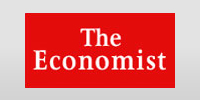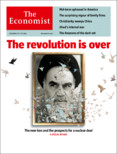|
Dilma
Rousseff scored a narrow victory, with 51.6% of the vote, in Brazil’s
presidential election run-off. As she embarked on her second term she promised
to reunite the nation after a bitter political contest. But she failed to
mention her centre-right rival, Aécio Neves, by name, and the rancour showed
little sign of abating. After the poll the Central Bank raised its key interest
rate to 11.25%. Inflation has been riding high for months, but the fraught
election and Ms Rousseff’s approach to monetary policy meant a rise was unlikely
before the run-off
SEE ARTICLE »
MORE FROM: POLITICS THIS WEEK »
|
|
|
Concluding
its long-standing process of “tapering”, America’s Federal Reserve announced its
final monthly purchase of bonds, bringing an end to its third round of
quantitative easing. The central bank introduced its policy of asset buying in
November 2008. Supporters of QE point to falling unemployment in America and a
strengthened economy, but critics say it has merely provided cheap money to
investors and inflated asset prices. Whatever the verdict, the Fed now views QE
as a vital tool and is not ruling out another future round
SEE ARTICLE »
MORE FROM: BUSINESS THIS WEEK » |
|
|
|




